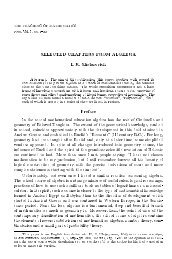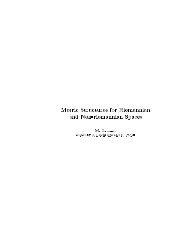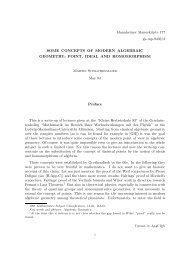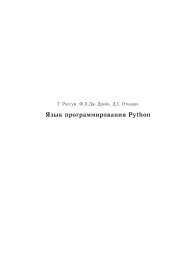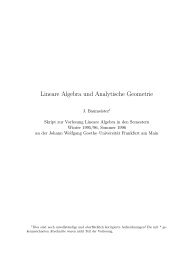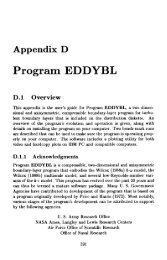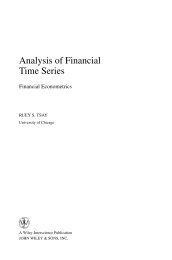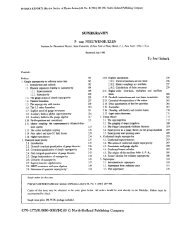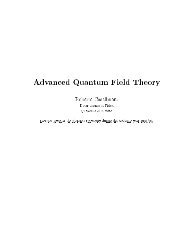Frommer's Las Vegas 2004
Frommer's Las Vegas 2004
Frommer's Las Vegas 2004
Create successful ePaper yourself
Turn your PDF publications into a flip-book with our unique Google optimized e-Paper software.
THE FOUR MOST PERVASIVE MYTHS ABOUT GAMBLING 205<br />
Impressions<br />
Stilled forever is the click of the roulette wheel, the rattle of dice, and<br />
the swish of cards.<br />
—Shortsighted editorial in the Nevada State Journal<br />
after gambling was outlawed in 1910<br />
addition to the instructions below,<br />
you’ll find dozens of books on how to<br />
gamble at all casino hotel gift shops,<br />
and many casinos offer free gaming<br />
lessons on the premises.<br />
The third part of this chapter<br />
describes all the major casinos in<br />
town. Remember that gambling is<br />
supposed to be entertainment. Picking<br />
a gaming table where the other players<br />
are laughing, slapping each other on<br />
the back, and generally enjoying<br />
themselves tends to make for considerable<br />
more fun than a table where<br />
everyone is sitting around in stony<br />
silence, morosely staring at their cards.<br />
Unless you really need to concentrate,<br />
pick a table where everyone seems to<br />
be enjoying themselves, and you will<br />
too, even if you don’t win. Maybe.<br />
1 The Four Most Pervasive Myths About Gambling<br />
by James Randi<br />
James Randi is a world-class magician (the Amazing Randi), now<br />
involved in examining supernatural, paranormal, and occult claims. He is<br />
the author of 11 books on these subjects, and is the president of the<br />
James Randi Educational Foundation in Fort Lauderdale, Florida. The<br />
JREF offers a prize of $1.1 million to any person who can produce a<br />
demonstration of any paranormal activity. His website is www.randi.org,<br />
where details of the offer can be found.<br />
Most of us know little, if anything, about statistics. It’s a never-never land we can<br />
live without, something for those guys in white coats and thick glasses to mumble<br />
over. And because we don’t bother to learn the basics of this rather interesting<br />
field of study, we sometimes find ourselves unable to deal with the realities<br />
that the gambling process produces.<br />
I often present my audiences with a puzzle. Suppose that a mathematician, a<br />
gambler, and a magician are walking together on Broadway and come upon a<br />
small cluster of people who are observing a chap standing at a small table set up<br />
on the sidewalk. They are told that this fellow has just tossed a quarter into the air<br />
and allowed it to fall onto the table, nine times. And that has produced nine “tails”<br />
in a row. Now the crowd is being asked to bet on what the next toss of the coin<br />
will bring. The question: How will each of these three observers place their bets?<br />
The mathematician will reason that each toss of the coin is independent of the<br />
last toss, so the chances are still exactly 50/50 for heads or tails. He’ll say that either<br />
bet is okay, and that it doesn’t make any difference which decision is made.<br />
The gambler will go one of two ways; either he’ll reason that there’s a “run”<br />
taking place here—and that a bet on another tail will be the better choice—or<br />
he’ll opine that it’s time for the head to come up, and he’ll put his wager on that<br />
likelihood.<br />
The magician? He has the best chance of winning, because he knows that<br />
there is only 1 chance in 512 that a coin will come up tails nine times in a row—<br />
unless there’s something wrong with that coin! He’ll bet tails and he’ll win!



